4 Ways to Fix Laptop Screen Flickering
Most laptop screens have LCD or LED displays that although may function correctly most of the time can have issues that can cause flickering. There are a lot of different reasons why the screen on your laptop may flicker. Perhaps it is hardware issues such as the connections on the screen but it can also be software issues. Whatever the cause, this problem is fairly common which means that it is easily fixed.
In this article, we take a look at some of the reasons why your laptop's screen flickers and also provide you with some of the most effective solutions to this problem.
Part 1: Why is My Laptop Screen Flickering?
There are several reasons why your laptop's screen may be flickering. But some of the most common reasons why include the following;
- Faulty hardware such as a damaged screen can cause the screen to flicker from time to time
- Incorrect settings may also cause the issue
- Software problems such as an outdated version of Windows can also cause this issue
- Bad display drivers can also interfere with the proper function of the display, causing it to flicker
Part 2: How to Troubleshoot Laptop Screen Flickering?
The following are some of the best troubleshooting options to try when your laptop screen won't stop flickering;
Method 1: Check Task Manager to Fix Screen Flickering
The first thing you should do when your laptop screen starts flickering is to check the task manager.
Press "Ctrl + Shift +Esc" to open the Task Manager on your computer. You can also just type in "Task Manager" in the search function to access the process.
If the Task Manager is not flickering, then it is very likely that the problem could be caused by an application installed on the computer
If on the other hand Task Manager is flickering, then the problem could be caused by an outdated display driver.
Method 2: Update Incompatible Software on the Laptop
Some third-party apps have been known to cause a computer screen to flicker on Windows 10. These include Norton AV, iCloud, and IDT Audio. If you have one of these apps or other third-party apps that you think maybe incompatible with the system, it may be a good idea to update them.
You can usually find updates for the apps on the manufacturer's website and once updated, the flickering problem often goes away.
Method 3: Update Display Driver
Updating your display drivers may also be able to help you fix this flickering issue once and for all. But to safely do this, you need to boot the computer in Safe Mode, uninstall the current display adapter, and then check for driver updates. Here's a step by step guide to do that;
Step 1: Click on the "Start Button" and then select the "Settings"
Step 2: In the settings window that appears, click on "Update & Security" and select "Recovery" in the left pane
Step 3: Go to "Advanced Startup" and then select "Restart Now".
Step 4: Click on "Troubleshoot" and then select "Advanced Options"
Step 5: Go to the Startup Settings and click on "Restart"
Step 6: When the computer restarts, you should see the various options for "Safe Mode". Choose "Enable Safe Mode with Networking" since we are going to need to access the internet to update the drivers.
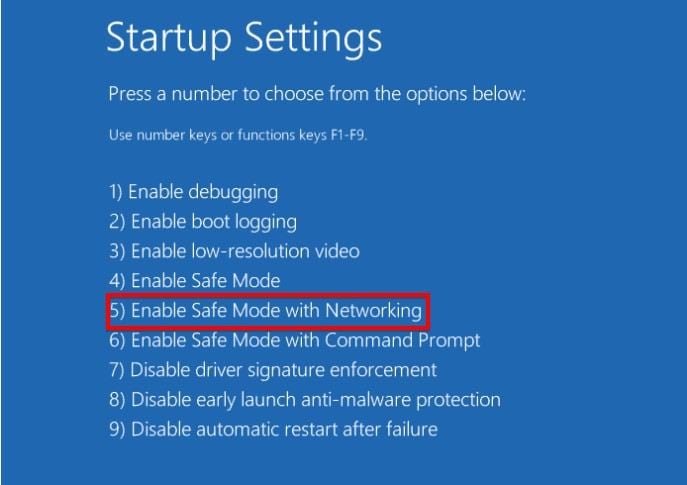
Step 7: Once the computer is in safe mode right-click on the "Start" menu and then select "Device Manager"
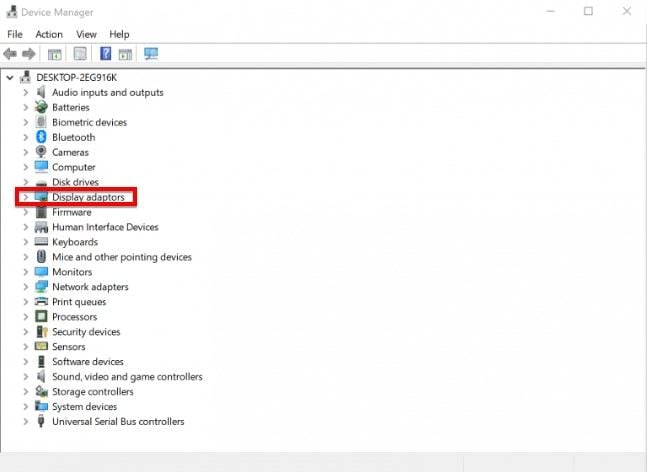
Step 8: Click on "Display Adaptors" to expand the option and then right-click on the listed adapter and select "Uninstall Device"
Step 9: Choose the "Delete the driver software" for this device option and then select "Uninstall"
Step 10: Restart the computer and once it reboots, go to Settings > Update & Security > Windows Update > Check for Updates
Method 4: Modify the Refresh Rate
You can also change the refresh rate of your monitor. The refresh rate refers to how many times the screen redraws each second. This setting may be related to older desktop monitors, but it may also affect the quality of LCDs in Laptops as well. To modify the screen's refresh rate, follow these simple steps;
Step 1: Right-click on the desktop and then select "Screen Resolutions"
Step 2: Click on "Advanced Settings" and then select "Monitor"
Step 3: Check "Hide Modes that this Monitor cannot display" and then choose a refresh rate from the drop-down list
Moreover, you can learn how to fix black or with a screen issue.
Part 3: How to Recover Lost Data from a Laptop
Data loss is another problem that many laptop users face. Like this flickering issue, data loss can also be caused by several issues including accidental deletion, malware and viruses, and even hardware and software issues. Therefore when you lose data on your laptop, you need a solution that will make the process of data recovery very easy, while ensuring a very high recovery rate. This tool is Recoverit Data Recovery, a data recovery program that is designed to make data recovery an easy and seamless process.
The following are just some of the tool's most important features;
- This program supports the recovery of all types of files and all file systems including FAT and NTFS
- It will recover data lost from your computer's hard drive as well as all other types of storage devices including external storage devices, USB drives, and even SD cards
- It has one of the highest recovery rates in the business, allowing users to recover all types of files in a very short time
To use Recoverit to recover data you've lost on your laptop, download and install the program on to your computer and then follow these simple steps;
Step 1: Choose a Location
Once the program has been installed, run it, and in the main window, select the drive with the missing data.
Click on "Start" to begin the process.

Step 2: Scanning the Location
The program will immediately begin scanning the selected location for any missing file. Keep in mind that this scan can take a while depending on the amount of data on the drive and the individual size of the files.
You can, however, click on "Stop" or "Pause" should you happen to see the missing data while the scan is running.

Step 3: Preview and Recover Files
Once the scan is complete (or paused), click on a file to preview it and a thumbnail will appear on the right panel.
You can also double click on the file to bring up a popup preview window. When you are certain this is the file you need, click on "Recover" to save the file to your computer.
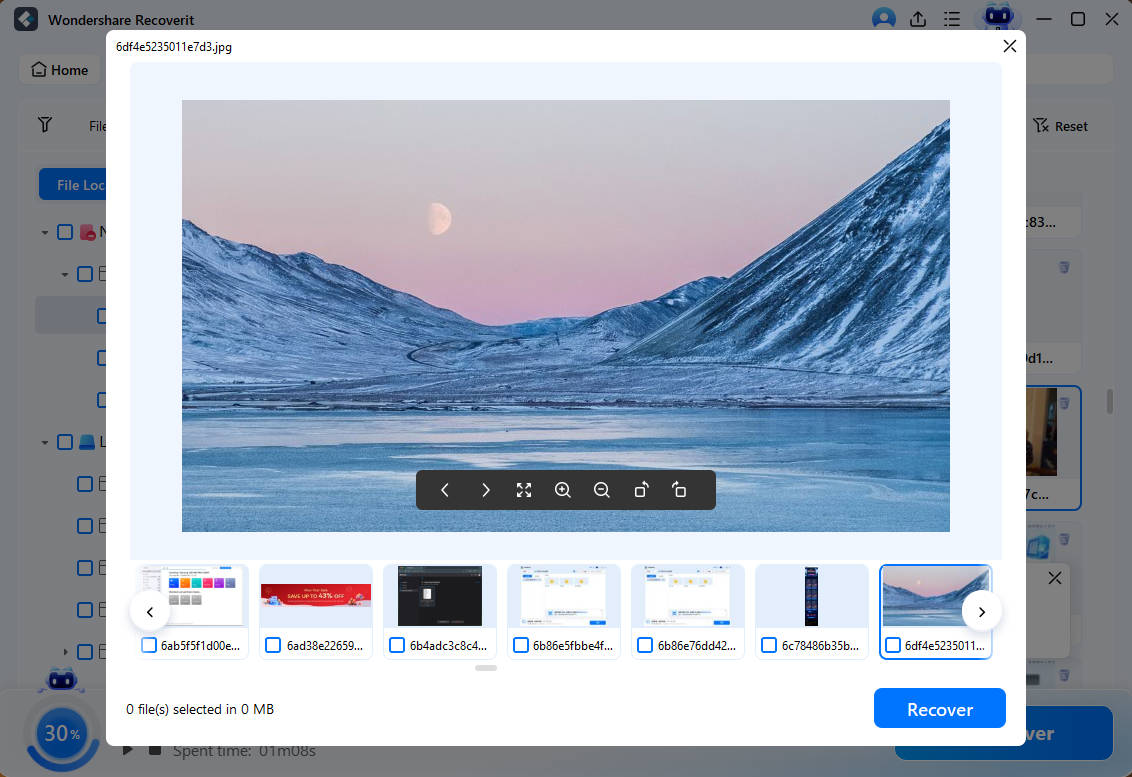
Recoverit will allow users to recover up to 100MB of data from the computer for free.
This laptop screen flickering issue is a problem that can occur at any time. The solutions above should be able to help you fix the issue once and for all. Let us know in the comments section below if the solutions worked for you. As always questions and comments on this and any other issue are also welcome.
Video Tutorial on How to Recover Deleted Files on Windows 10/8/7 Easily?
People Also Ask
-
How to repair laptop screen flickering when moved
If your laptop flickers when moved, you need to update your graphic card drivers. Go to the "Hardware and Sound" section of your Control Panel. Select the "Display Adapters" and choose the tab "Device Manager". This is where you will see the model and brand of your video card so that you can update it on the manufacturer's website.
-
How do I stop my laptop screen from flickering?
You can stop your laptop screen from flickering by disabling Windows Desktop Manager. Create alignment between the refresh rates of your external monitor and your laptop. Go to the manufacturer's website and get the latest drivers to download.
-
How to resolve laptop screen flickering vertical lines
Make an update of your graphics driver or video card to resolve this issue. You can also adjust the display settings of your computer to achieve the best resolution for your monitor. Log on with Safe Mode or perform a clean boot of your system.
Computer Troubleshooting
- Win System Crash
- Windows Tips
- Computer Problems
- Blue Screen Errors
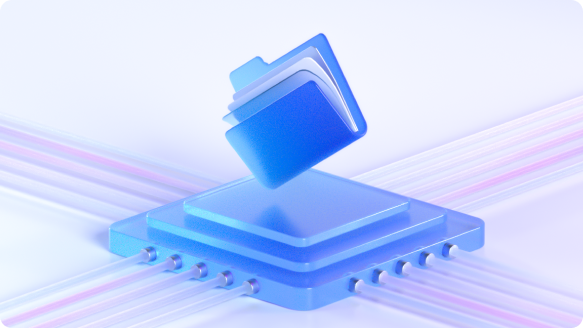







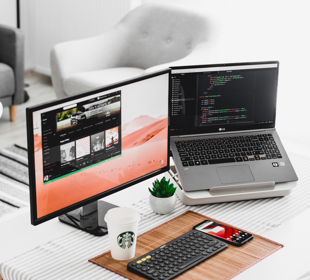
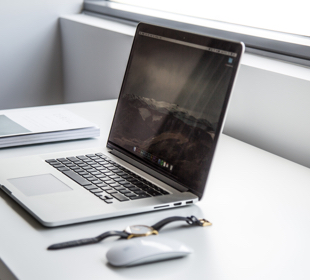


David Darlington
staff Editor